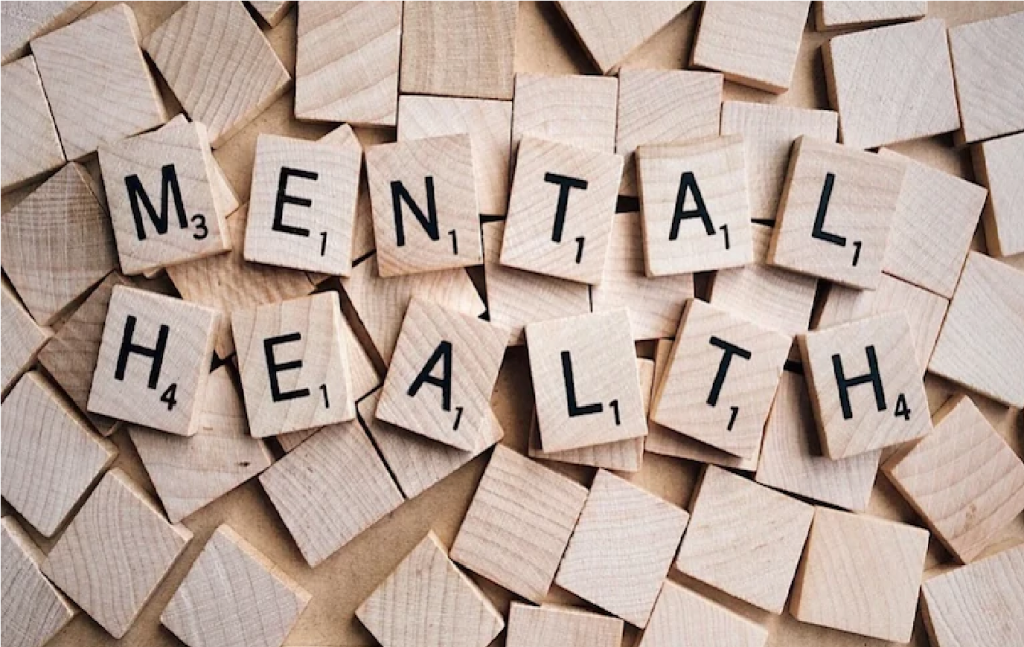Curated by the Knowledge Team of ICS Career GPS
Education

The kind of mental health issues students are facing today
Excerpts from article by Aachal Jain, published in India Today
The fast paced world has led to a trickling down of mental health concerns in school going children. The Association for Children’s Mental Health (ACMH) has reported that 1 in 5 children and youth have some kind of diagnosable emotional, behavioural, or mental health disorder. Furthermore, 1 in 10 adolescents have a mental health issue serious enough to impair their function at home or in school.
These concerns go unreported as parents and caregivers are unable to distinguish whether certain changes should be attributed to normal growth and development or whether they might be early signs of a growing problem
How it all starts?
The first few subtle signs that student’s report range from school refusal, difficulty with concentration and learning, disruptive behaviour, eating and sleeping problems. While some of these are transitory, mild and moderate, others cause serious distress, confusion, lack of control, and become unmanageable.
Problems at school can show up as poor academic performance, lack of motivation in school, loss of interest in school work, or poor relationships with peers or teachers.
Signs and Symptoms to look out for
Depression: Depression is a mood disorder and the symptoms of depression differ from person to person. Ultimately, depression is a result of a chemical imbalance in our brain.
- Sadness, feelings of being overwhelmed
- Feelings of hopelessness and powerlessness.
- Having trouble concentrating and paying attention, difficulty reading and completing work tasks.
- Changes in sleep habits and appetite changes.
- Decrease in self-care
- Withdrawing from or avoiding social interactions (online or in-person)
- Frequent reference to death or dying
Anxiety: Everyone experiences anxiety from time to time. However, mounting, ongoing feelings of worry, tension, and panic can interfere with daily functioning. Depending on how your body responds to increased levels of certain chemicals, panic attacks may be mistaken as a physical ailment, such as a heart attack or a tension headache.
- Feelings of stress and apprehension
- Shortness of breath
- Frequent muscle pain and tension
- Sweating and dizziness
- Irritability and difficulty concentrating
- Fearfulness
- Isolation
- Changes in sleep and eating patterns
Suicide: Many students experience frustration and hardship, but sometimes those thoughts gain an intense momentum, bringing students to a place where they feel the need to end the pain. It is important to raise a red flag and inform an adult if you notice any of these signs.
- Talk about feeling trapped, feeling as if they are a burden to others, feeling like they have no reason to go on, and ending their lives.
- Display a variety of moods, including anxiety, irritability, loss of interest in activities they enjoyed before, humiliation, rage, and depression.
- Some may even give up prized possessions, write good-bye notes for family members, display risk-taking behaviours.
Eating disorders: Eating disorders can be life-threatening issues and can contribute to the following serious health issues like stunted growth, kidney problems or heart problems if not treated properly.
- Distorted or poor body image
- Excessive exercise
- Irregular heartbeats
- Feel like eating is out of control
- Fear of eating in public
- Constantly making excuses for their eating habits
Tips to support your mental-wellbeing
- Be kind to yourself and others: Been socially distant can impact our level of empathy and connectedness. Now more than ever, we need to stand up against bullying and discrimination.
- Limit screen-time: The pandemic has inevitably lead to an increase in screen-time for all of us which is not good for health. Engage in chores that you can do without a screen.
- Self-care activities: Kids as well as adults benefit from activities that promote resilience and well-being. This includes getting good amounts of sleep and exercise.
- Mental Health Support: There are suggested interventions for dealing with mental health concerns like cognitive behaviour therapy, mindfulness-focused therapy and acceptance and commitment therapy. Seek help from a professional.
The global pandemic has led to many students being at home in unstable environments, struggling with financial hardships, and struggling with the lack of a ‘normal’ routine.While COVID-19 may make it harder for students to access the mental health resources they need, one potential bright spot is that it has led to the reduction in the stigma of reaching out to professionals for mental health support. Due to the privacy of approaching a school counsellor via call or email and with more conversations about mental health becoming the norm, students sure are open to speaking to professionals about their struggles.
Career

To thrive in a pandemic, you need to reinvent your business [Opinion]
Excerpts from article Suzanne Stevens, published in Ventureburn
Businesses that are sufficiently agile and creative have the potential to pivot and reinvent themselves, and ultimately stay relevant both during this pandemic and after the dust has settled. The pivot process is multifaceted: it involves forming new habits, adopting a committed growth mindset, and behaving like a hungry and innovative start-up.
In behavioural science, there’s a term for the kind of behaviour that sets apart the individuals who are able to succeed when faced with similar challenges where their peers tend to fail. It’s called ‘Positive Deviance’. Positive deviance calls for openness, and optimism of behaviour first rather than thought – in essence, the mindset that it’s “easier to act your way into a new way of thinking than it is to think your into a new way of acting”.
Equipped with these tools, success in the wake of Covid-19 is entirely possible.
1) Combine powerful new habits with a growth mindset
Humans are all too familiar with the need to change, it has been a critical part of our survival for millennia. It has also been studied in detail and the science of how and why people change is well known and established. What Covid-19 has made abundantly clear, is that businesses are no different. Companies both big and small are capable of adapting to the prevailing circumstances – and indeed of thriving amid them.
Strong leadership is crucial to the success of this adaptation. Even at the best of times, good leaders can help businesses to maximise productivity and achieve their goals. During times of crisis, good business leadership involves forming new habits to make change possible and keeping a firm and steady gaze on the growth potential. Doing so can lead to important shifts in the way your business works, in the way it engages with its client base and the way it solves problems.
2) Think like a startup
One way to adopt this growth mindset is to think like an entrepreneur starting a business. Start-ups focus on what makes good strategic sense, they prioritise innovation and they’re quick to adapt to change. Be like a start-up.
3) Don’t be afraid to challenge the status quo
Entrepreneurs look around and ask, “Why does everyone do this the same way?” They start with a blank piece of paper before them and write down ideas that are entirely new and fresh. Businesses that disrupt the status quo, particularly during a crisis, can position themselves at the cutting edge of their industries. The result is growth.
4) Form multi-disciplinary teams
Unprecedented problems need to be met with a diverse range of knowledge and skills. A narrow approach is only going to reduce, or even eliminate, your chances of success. You need to be able to look at things from a variety of different perspectives and find a number of different solutions to any given challenge. This requires different people with different skills-sets to be seated at your table.
5) Be curious and creative
Go beyond your own context for inspiration. You might be surprised at the parallels that can be drawn between sectors and industries.
6) Leap into action and start doing
Start-ups are bold. They turn their engines on quickly in order to put some of their ideas into practice. They think carefully and strategically, but then swiftly take the plunge to see whether their ideas have scope for success. Making this part of your approach will likely distinguish you from your competitors.
7) Embrace risk – strategically
Our experience has taught us that nothing in business is guaranteed. You have to perform and get better at whatever you do, or you will lose your competitive advantage. These uncertain times may tempt some businesses into being more risk-averse, but in many instances, being decisive in this time is what will set you apart.
In this new era, Continuing with the ways of old is no longer an option. To continue growing and staying relevant depends on adaptation, innovation, and the courage to reinvent.
Humans are all too familiar with the need to change, it has been a critical part of our survival for millennia. It has also been studied in detail and the science of how and why people change is well known and established. What Covid-19 has made abundantly clear, is that businesses are no different. Companies both big and small are capable of adapting to the prevailing circumstances – and indeed of thriving amid them.
(Disclaimer: The opinions expressed in the article mentioned above are those of the author(s). They do not purport to reflect the opinions or views of ICS Career GPS or its staff.)
Like this post? For more such helpful articles, click on the button below and subscribe FREE to our blog.




